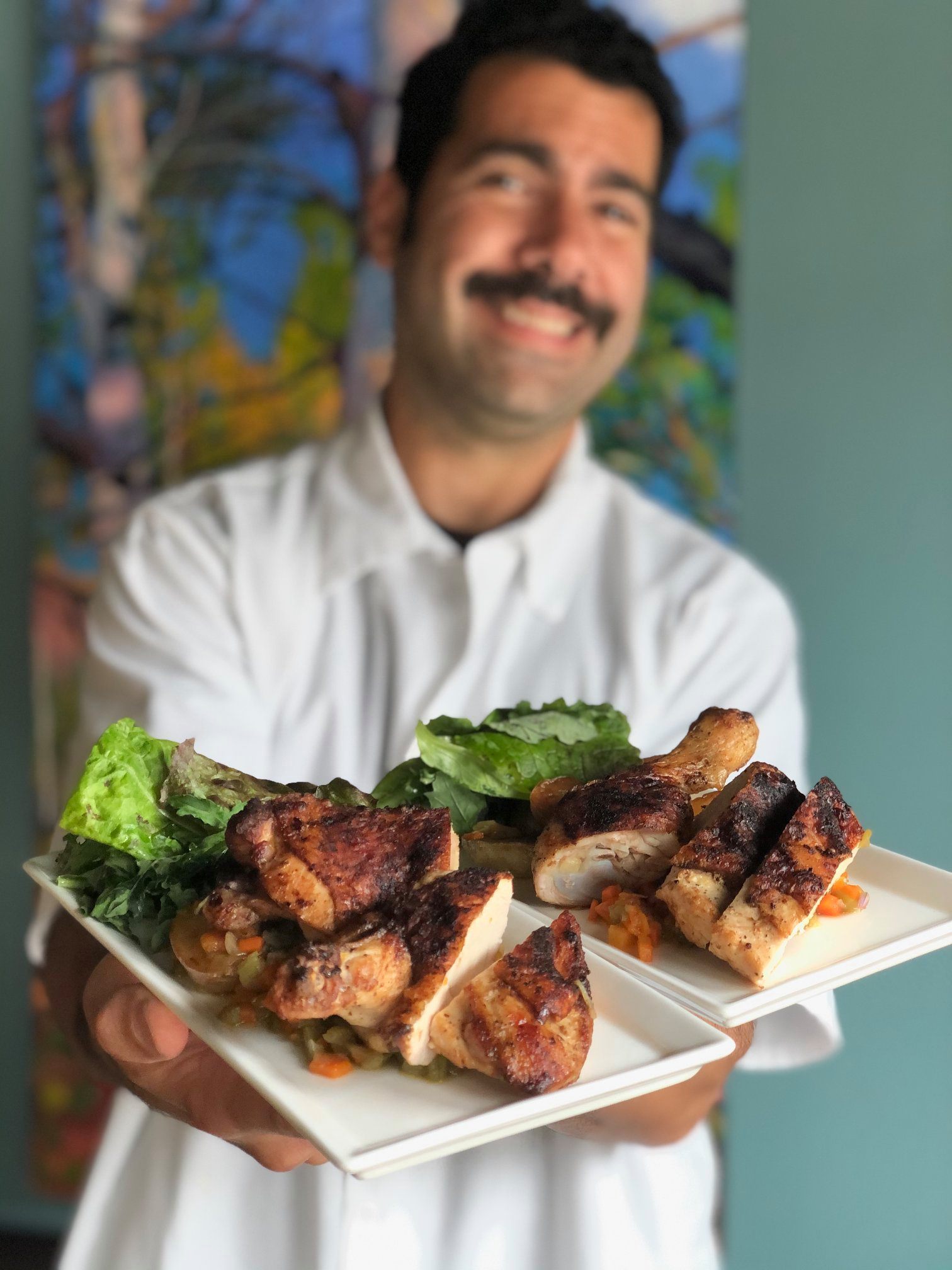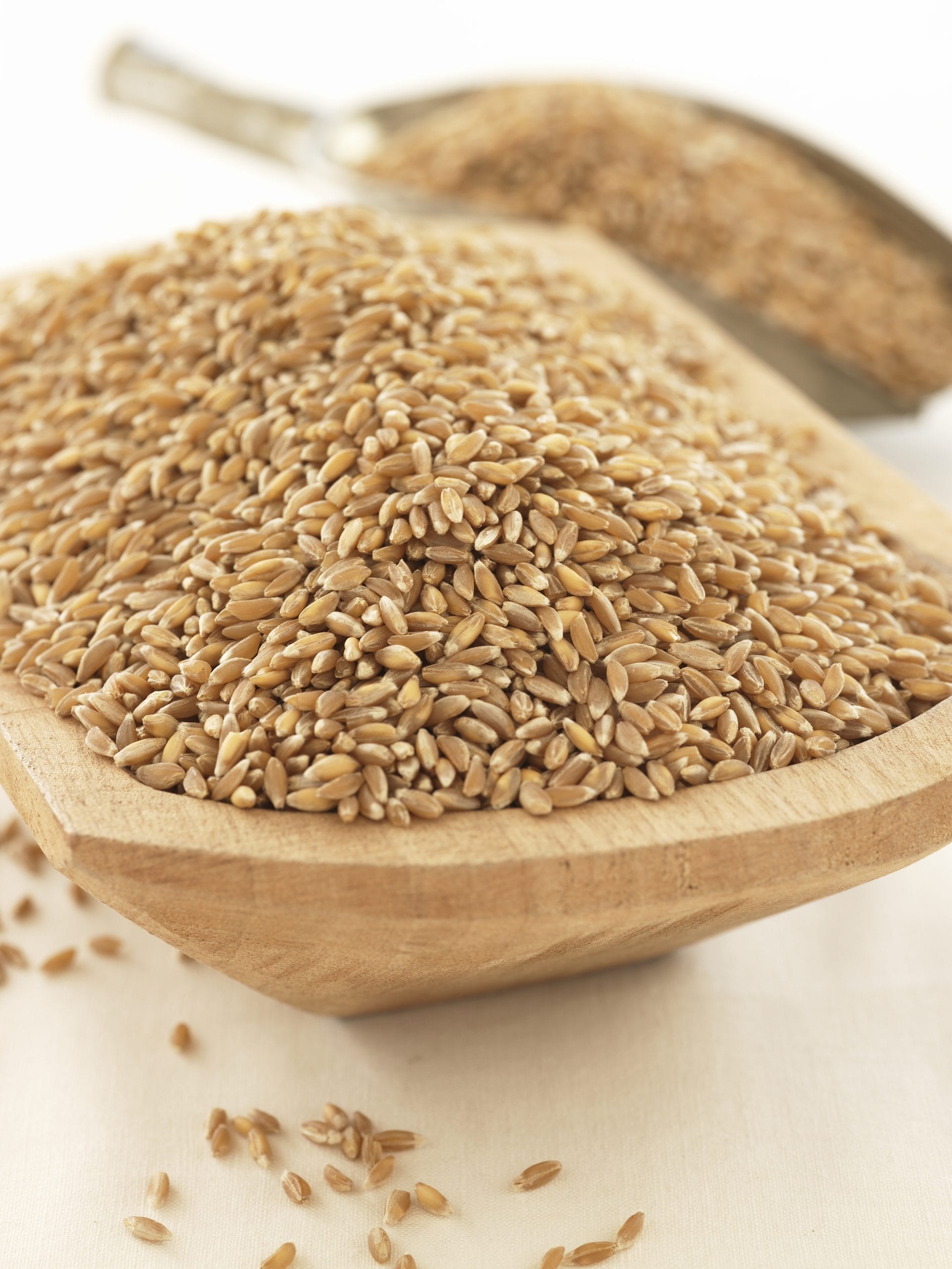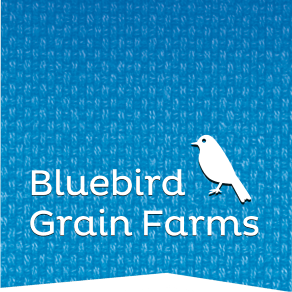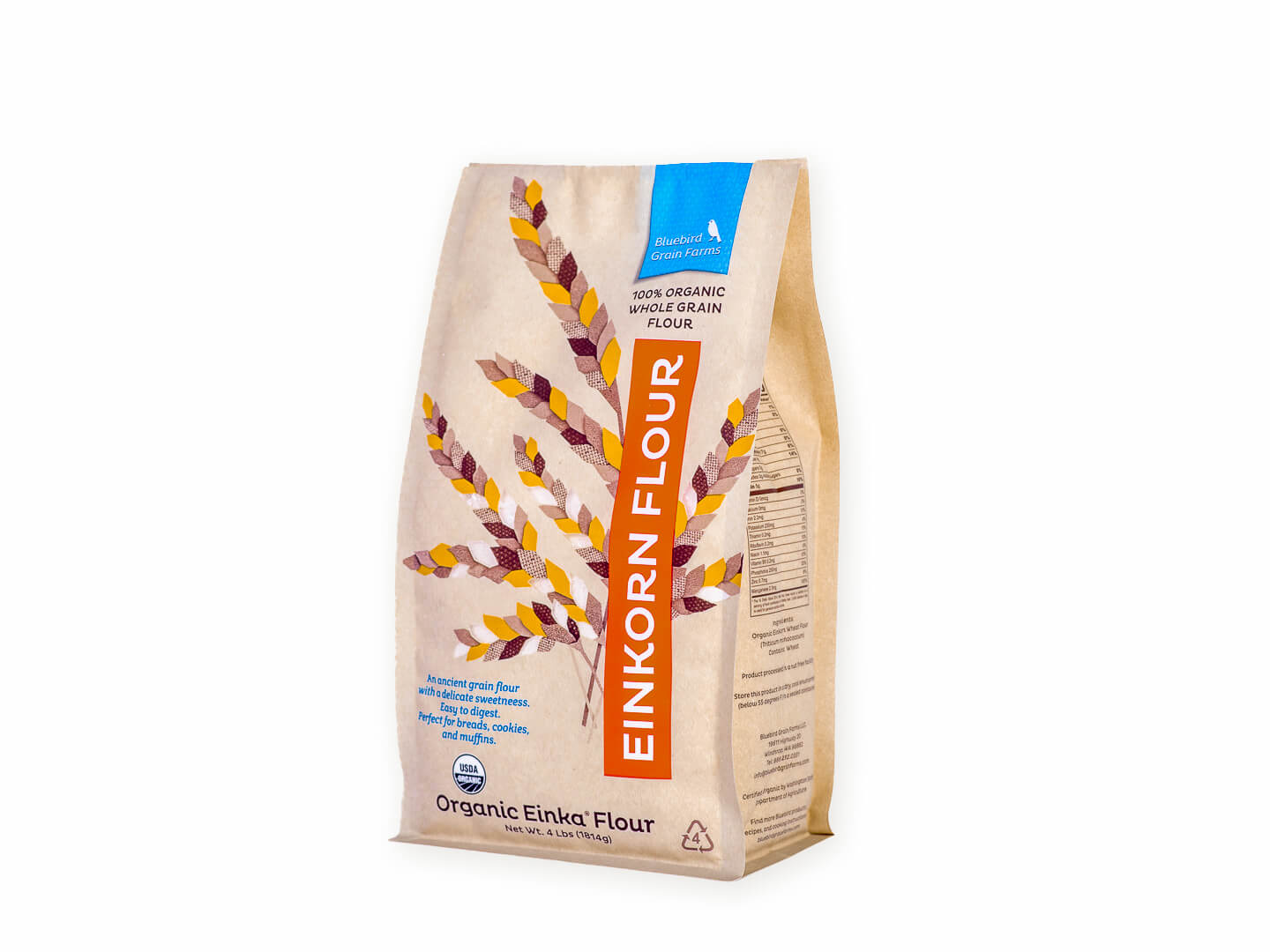
Ashley Lodato, Bluebird Grain Farms staff writer. Photos courtesy of Celilo
Restaurant Chef Ben Stenn isn’t the first person to have a trip to France change his life and he won’t be the last. But the Hood River, Oregon community can rejoice that France lured Stenn from a career in law to a life devoted to sharing what he refers to as “the bounty of the region” with those who dine at Celilo Restaurant, where he and his team “make food with love.”
Stenn’s transformation from bibliophile to chef came early in his young adult life. Stenn graduated from New York University with a major in Political Science and a minor in French Literature–“which qualified me to do very little,” he says. But, he adds, “this was back when school was considerably less expensive and there was equally less pressure to have an income-earning job at graduation.”
One of the high points of Stenn’s undergraduate experience was a study abroad program, where he honed his French language skills and made new friends. As graduation neared, “so did the reality of my lack of plans,” Stenn says. Stenn likes to talk and can argue persuasively, so he applied to law school, but his heart wasn’t in it.
 Then a call from a friend in the study abroad program presented Stenn with an alternative: work as a “stagiare,” translating recipe books at a cooking school in France. In exchange for working as a translator, Stenn received room, board, and access to cooking classes, which eventually led to restaurant work, and, Stenn says, his raison d’être.
Then a call from a friend in the study abroad program presented Stenn with an alternative: work as a “stagiare,” translating recipe books at a cooking school in France. In exchange for working as a translator, Stenn received room, board, and access to cooking classes, which eventually led to restaurant work, and, Stenn says, his raison d’être.
It wasn’t that cooking was new to Stenn; his family had always had a love of food, cooking and baking bread together. “I’m not a religious person but traditional preparations from an eastern European Jewish family played a big part in our family recipes passed down through generations,” Stenn says. “My parents appreciated real ingredients and true preparations so we never went to fast food restaurants growing up. I was an odd kid amongst my friends with families that made regular trips to McDonalds. I had never gone until my teenage years.”
 Stenn’s parents were inventive cooks. His mother, an art teacher, brought home firing bricks from a clay kiln and his father “layered them in our electric oven so that we could crank it up to the maximum and get a proper crust on homemade pizza.” They also appreciated fine dining and never took it for granted. “We were not an affluent family so we saved for special experiences,” Stenn says. “I knew what the Michelen guide was at a young age. As a family we savored such occasions, getting dressed up and lingering over a special meal. We lived in a modest home that was not thick with possessions. Instead we travelled and had special meals from time to time.”
Stenn’s parents were inventive cooks. His mother, an art teacher, brought home firing bricks from a clay kiln and his father “layered them in our electric oven so that we could crank it up to the maximum and get a proper crust on homemade pizza.” They also appreciated fine dining and never took it for granted. “We were not an affluent family so we saved for special experiences,” Stenn says. “I knew what the Michelen guide was at a young age. As a family we savored such occasions, getting dressed up and lingering over a special meal. We lived in a modest home that was not thick with possessions. Instead we travelled and had special meals from time to time.”
When Stenn returned from France, he was a young but competent cook entering the New York restaurant scene, which he calls “rugged–the age of abusive chefs, grueling hours, poor quality of life.” He eventually left all this behind, moving to Hood River in 1995, where he operated the Sixth Street Bistro for ten years and established a family of farmers and producers. These relationships and priorities became the foundation of Celilo Restaurant when it opened in 2005: “Know the source, Know your people, Know your food.”
At Celilo, Stenn departs from the “rugged” urban kitchen environment, instead encouraging an environment of mutual respect. “I consider myself a crew member and I treat everyone in my kitchen the way I want to be treated,” he says. “People make mistakes and that requires correction and constructive input. I never did well with someone yelling at me so I don’t operate that way.”
 Although he veered away from an unhealthy management style, Stenn retained one aspect of the New York fine dining scene: its amazing ingredients. “I worked at restaurants that had the natural jewels of earth flown in from the far corners to create dazzling combinations. I refer to this as the artist’s palette, a collection of beautiful ingredients, building blocks, that come together to create a beautiful plate. Standing in front of 60 to 80 building blocks (quart containers of mise en place) was an inspiration in the creative process.”
Although he veered away from an unhealthy management style, Stenn retained one aspect of the New York fine dining scene: its amazing ingredients. “I worked at restaurants that had the natural jewels of earth flown in from the far corners to create dazzling combinations. I refer to this as the artist’s palette, a collection of beautiful ingredients, building blocks, that come together to create a beautiful plate. Standing in front of 60 to 80 building blocks (quart containers of mise en place) was an inspiration in the creative process.”
At Celilo, Stenn says he has adapted this concept “to show off the bounty of our region.”
“I don’t fly in white truffles from Italy,” he says. “I do revel in the amazing collection that comes from the farms that support our restaurant. The artist palette here may have fewer total elements but they are at their absolute best, arriving fresh, ripe and with minimal handling.”
Stenn is perpetually delighted by what the Pacific Northwest brings to the table. “In New York City we had morel mushrooms flown in from Oregon. When I finally moved out west, I had a mushroom picker arrive at the back door of the kitchen with a basket of stunning morels. They would have passed through 10 sets of hands and three distribution centers to arrive days later at my previous location. In Hood River, I received them the day that they were picked.”
Stenn also realizes that all this fresh bounty is only available thanks to farmers, growers, ranchers, orchardists, and other food producers (referred to as “farmers” for concision hereafter). “The farmer has the hardest job of anyone in the food business. As a lover of the end product I have always been curious about the process. I realized early on that it was my duty to support the growers in any way that I could.”
Stenn’s three-step guidebook for supporting small-scale farmers:
- Buy it all. “When a farmer offered a harvest to me, and these are all small operations that I work with, individuals or married couples, I bought everything they had to offer. My logic was that it would save them time, possibly the loss of some of their harvest and allow them to focus on the growing. I’ve maintained this ethic as much as possible.”
- Communicate. “Visit the farms, learn about their process, understand their successes and hardships, share the input of my own success and challenge with their vegetables and more.”
- Honor the first step. “Buy it all. Make requests for specialty ingredients, yes, but buy what is abundant and figure out how to make something delicious with it.”
Stenn also features his local purveyors on Celilo’s website, thus promoting their products to other customers.

Stenn owns and operates Celilo with two business partners: Maui Meyer with whom Stenn has worked since 1995, and Jacqueline Carey, who manages the front of the house and serves as the keeper of the wine list.
Prior to that, Stenn says, the trio teamed up at the Sixth Street Bistro, where they hatched the plan for Celilo. “Celilo was an idea that we cultivated over ten years. We ran the Bistro carefully and frugally and saved everything for the eventual opening of Celilo. We designed everything within the building in which we are located; interior design, bar and dining room layout, tables and table top and of course kitchen.”
 Celilo has “been in motion” since 2005, Stenn says, especially in the last five years. “We have had a really great time working off site events at The Orchard, a family-run event space in a pear orchard located a few miles from the restaurant. We are like-minded people: hard working, with good attention to detail. A couple years back, we decided to partner with The Orchard and offer our off-site catering exclusively with them. They have made significant progress working with their space including a lavender farm to accent the beauty of the pear orchard.”
Celilo has “been in motion” since 2005, Stenn says, especially in the last five years. “We have had a really great time working off site events at The Orchard, a family-run event space in a pear orchard located a few miles from the restaurant. We are like-minded people: hard working, with good attention to detail. A couple years back, we decided to partner with The Orchard and offer our off-site catering exclusively with them. They have made significant progress working with their space including a lavender farm to accent the beauty of the pear orchard.”
 But more importantly for Celilo, Stenn says, The Orchard “created a garden space that allows us to grow our own herbs and vegetables. This is a major development for us. We use a ton of herbs in our cooking. Now, we literally take a few paces out to the herb boxes and harvest what we need, directly from the ground. It really ups our game. The cater crew harvests herbs and vegetables and brings them down to the restaurant kitchen. The restaurant prep team spends part of their time doing prep work for the cater menus. Then the catering team takes over and the final cooking takes place on site. It’s a lovely symbiosis.”
But more importantly for Celilo, Stenn says, The Orchard “created a garden space that allows us to grow our own herbs and vegetables. This is a major development for us. We use a ton of herbs in our cooking. Now, we literally take a few paces out to the herb boxes and harvest what we need, directly from the ground. It really ups our game. The cater crew harvests herbs and vegetables and brings them down to the restaurant kitchen. The restaurant prep team spends part of their time doing prep work for the cater menus. Then the catering team takes over and the final cooking takes place on site. It’s a lovely symbiosis.”
Bluebird Grain Farms products feature frequently in the Celilo menu, particularly the Organic Whole Grain Emmer Farro. “Our classic preparation is to steam it (rice method),” Stenn says. “We also enjoy cooking it risotto-style to release some starch and get a creamier consistency. It has a unique mouth feel which is why I love it so much. There isn’t another ingredient that can compare. I like the chewy nature of the grains and the mild, earthy flavor.”
products feature frequently in the Celilo menu, particularly the Organic Whole Grain Emmer Farro. “Our classic preparation is to steam it (rice method),” Stenn says. “We also enjoy cooking it risotto-style to release some starch and get a creamier consistency. It has a unique mouth feel which is why I love it so much. There isn’t another ingredient that can compare. I like the chewy nature of the grains and the mild, earthy flavor.”
Stenn’s team works with lots of vegetables but also meat and fish. “Bluebird’s Farro is an elegant accompaniment to proteins,” he says. “But I think it really shines when paired with grilled vegetables, sauteed spicy greens, butter glazed carrots…. the list goes on. I like gathering gorgeous vegetables, farro and a tangy sauce to create something special, then remark, ‘oh this is vegetarian too.'”
 Despite the many pots he is tending on the stove–both literal an metaphorical–Stenn says he leads a balanced life. “I’m a chef. I’m also a husband, a father, an outdoor enthusiast and a musician,” he says. “Although the restaurant can be pervasive, I learned from my early days that I’m a better chef when my life is rich outside of work. I mountain bike and windsport (currently dabbling with wing-foiling) and I enjoy both activities with my wife and daughters. I play guitar and sing and I’m still trying to learn piano. I might like to try some more writing and storytelling in the future.”
Despite the many pots he is tending on the stove–both literal an metaphorical–Stenn says he leads a balanced life. “I’m a chef. I’m also a husband, a father, an outdoor enthusiast and a musician,” he says. “Although the restaurant can be pervasive, I learned from my early days that I’m a better chef when my life is rich outside of work. I mountain bike and windsport (currently dabbling with wing-foiling) and I enjoy both activities with my wife and daughters. I play guitar and sing and I’m still trying to learn piano. I might like to try some more writing and storytelling in the future.”
To learn more about Celilo Restaurant, visit their website. Click HERE for a Organic Whole Grain Emmer Farro Risotto recipe.

